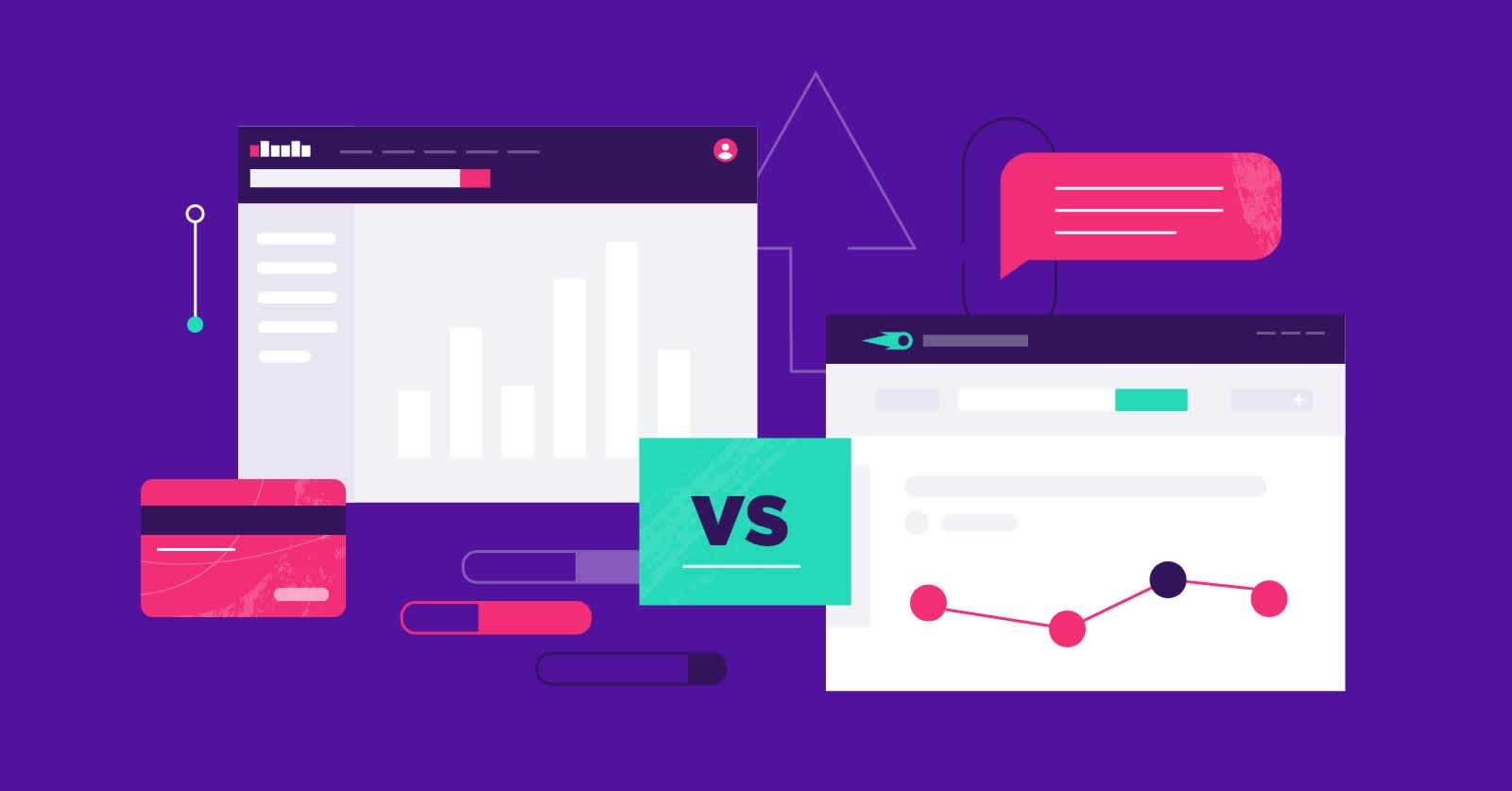Search engine monitoring is an essential practice in the field of digital marketing. It refers to the process of tracking and analyzing your website's performance on search engines. With the growing importance of online visibility, understanding how your site performs in search results has become an invaluable asset for businesses worldwide.
What Is Search Engine Monitoring?
In essence, search engine monitoring revolves around analyzing your visibility on the web. It involves observing how your webpages rank for specific keywords or phrases searched on search engines like Google, Yahoo, and Bing. Furthermore, search engine monitoring also involves keeping an eye on search trends, user behavior, and the constant updates to search engine algorithms.
Why is Search Engine Monitoring Important?
Search engine monitoring carries immense significance in the current online market field. Some compelling reasons are:
- Identifying Strengths and Weakness: By identifying the keywords you rank high for and those you don't, you can understand where you need to improve, giving you a clear road map to success.
- Tracking Competitors: Knowing where your competitors stand and what strategies they are using helps you plan and execute better SEO tactics.
- Understanding User Intent: Search engine monitoring helps you understand the type of content your audience is looking for, which enables you to optimize your content accordingly.
Key Aspects of Search Engine Monitoring
Organic Website Traffic
One of the main focuses of search engine monitoring is assessing organic website traffic—visitors who get to your site by using a search engine. Organic traffic is a key metric for SEO, giving insights into the effectiveness of your SEO strategies.
Keyword Ranking
In search engine monitoring, you track the performance of specific keywords relevant to your business. This includes identifying which keywords bring the most traffic, which ones are underperforming, and uncovering new ranking opportunities.
Search Engine Updates
Search engines constantly update their algorithms. Effective search engine monitoring means staying on top of these changes and tweaking your strategies as needed.
Link Building
High-quality backlinks enhance your chances of ranking high on SERPs. Thus, tracking these backlinks - both quality and quantity - is a crucial part of search engine monitoring.
Best Practices In Search Engine Monitoring
When it comes to search engine monitoring, following best practices can lead to more effective strategies. Some of these include:
- Regular Monitoring: SEO is not a set-it-and-forget-it tactic. Regular tracking is key to staying ahead.
- Use of Tools: Utilizing SEO monitoring tools can make the process more accurate and efficient.
Essential Tools for Search Engine Monitoring
Several tools can help in approaching search engine monitoring more effectively:
- Google Analytics: This free tool from Google provides comprehensive details about website traffic, user behavior, and more.
- SEMrush: SEMrush is a paid tool, furnishing detailed SEO reports, competitor analysis, keyword ranking statistics, and more.
- Moz Pro: Moz Pro offers multiple SEO tools under one roof, including keyword ranking, backlink analysis, and on-page SEO suggestions.
Frequently Asked Questions about Search Engine Monitoring
Can I Monitor Competitor's Search Engine Performance Too?
Absolutely, yes. Search engine monitoring isn't just about tracking your own website's performance. It also allows you to monitor your competitors. By understanding what keywords your competitors are ranking for, you can identify gaps in your own SEO strategy and make necessary improvements. This form of competitive analysis gives you a clear picture of the competitive landscape and helps you adapt your SEO tactics accordingly.
What tools are used in Search Engine Monitoring?
There are numerous tools available for search engine monitoring, each offering unique features. Some of the popular ones include Google Analytics, SEMRush, Ahrefs, Moz, and SpyFu. These tools provide insights into keyword rankings, organic traffic, bounce rates, click-through rates, backlink profiles, and more. The choice of tool depends on your business needs and budget.
How Often Should I Monitor My Search Engine Performance?
Search engine rankings can change daily due to factors such as algorithm updates, competitor activities, and changes in user behavior. Therefore, regular monitoring is crucial. Most experts suggest weekly checks as a standard, but you might need to monitor more frequently depending on your industry and competition.
Can Search Engine Monitoring Improve my SEO?
Definitely! Regular search engine monitoring gives you valuable insight into how effective your current SEO strategies are. This ongoing process allows you to understand which strategies work and which don’t, enabling you to fine-tune your SEO efforts, become more successful in ranking for relevant keywords, generate more traffic, and improve ROI.
Does Search Engine Monitoring Help in Content Development?
Yes, it does. One of the key benefits of search engine monitoring is that it provides data about which keywords are driving traffic to your site. By understanding what terms and phrases your target audience uses, you can tailor your content to meet their needs and attract more traffic.
Is Search Engine Monitoring Only About Keyword Tracking?
While keyword tracking is a significant part of search engine monitoring, it is not the only aspect. Search engine monitoring also includes tracking backlinks, auditing the website for technical issues, monitoring traffic sources and user behavior, competitive analysis, and more. In reality, it’s a comprehensive approach to understanding your overall online presence and performance.
What is the Role of Search Engine Monitoring in Digital Marketing?
Search engine monitoring plays a crucial role in digital marketing. The data gathered from monitoring helps businesses understand their online visibility, identify areas of improvement, optimize their SEO strategy, develop targeted content, analyze competitor strategies, and more. Thus, it is instrumental in helping businesses achieve their digital marketing goals.
Does Search Engine Monitoring Require Technical Expertise?
While search engine monitoring does have a technical aspect, you don't necessarily need to be a tech expert to get started. Many available monitoring tools are user-friendly and provide comprehensive tutorials and customer support. However, to fully leverage the insights from search engine monitoring and translate them into successful SEO strategies, a certain level of understanding is advantageous.
Pros of Search Engine Monitoring
Better Understanding of Customer Behavior
Increased Customer Insight
Search engine monitoring can help businesses better understand their customers' behavior. By tracking what customers are searching for and the type of content they consume, companies can tailor their product offerings and marketing efforts to better match customer needs and preferences.
Predicting Trends
Furthermore, monitoring search engine data over time can help businesses predict trends and stay ahead of the competition. For example, if a company notices a spike in searches related to a particular product or topic, they may choose to capitalize on this by developing new products or creating content for their website around this niche.
Improve SEO Performance
Keyword Optimization
Regularly monitoring search engine performance allows businesses to refine their SEO strategy, helping them to achieve better rankings. By keeping track of which keywords are driving traffic to their website and which are not, businesses can make necessary adjustments.
Competitor Analysis
In addition to providing insight into a business's performance, search engine monitoring can also be used to keep tabs on the competition. Through this, businesses can identify opportunities to outperform their competitors in search rankings.
Protect Brand Reputation
Detect Negative SEO Attacks
Monitoring search engine performance can help in detecting and preventing negative SEO attacks. These attacks, which include spamming, link farming, and keyword stuffing, can harm a website's ranking and reputation. Proper monitoring can help identify these issues early on so they can be addressed.
Reputation Management
Additionally, search engine monitoring can aid reputation management. By using alert systems, businesses can be notified whenever their brand name appears online. This allows them to quickly respond to negative reviews or news stories, helping to maintain a positive brand image.
Cons of Search Engine Monitoring
Time-Consuming
Requires Continuous Effort
Despite its benefits, search engine monitoring can take up significant resources in terms of both time and money. As search engine algorithms are constantly changing, successful monitoring requires regular evaluation and refinement of SEO strategies which can eat into productivity.
Difficulty in Tracking ROI
It can also be difficult to track the return on investment (ROI) from search engine monitoring, particularly in the short term. While improvements in search rankings may be noticeable, determining the actual impact on sales or other key business metrics can take time.
Potential for Information Overload
Difficulty in Information Interpretation
The vast amount of data that can be gathered from search engine monitoring can lead to information overload. Businesses may find it challenging to parse through this data and determine which information is most relevant for their strategy.
False Positives
Moreover, monitoring can often yield too many false positives. Businesses may dedicate resources to addressing what appears to be a major issue, only to find out it was a minor one or a false alarm, wasting valuable time and resources.
Privacy Concerns
Potential Ethical Issues
While tracking customer behavior can provide valuable insights, it also raises certain privacy concerns. Businesses must ensure they are acting ethically and respecting customer privacy when using this form of monitoring.
Legal Repercussions
Failure to comply with data privacy regulations can result in serious legal repercussions. Therefore, businesses need to be familiar with laws such as the General Data Protection Regulation (GDPR) in Europe before implementing these monitoring techniques.
Dependence on Technology and Tools
Technical Problems
Another downside of search engine monitoring is the potential for technical problems. Should the software or tools used for monitoring crash or become unavailable, it could severely disrupt a business's monitoring strategy.
Limitations of Available Tools
Furthermore, some tools for monitoring search engine performance may not provide all the data a business might need or may not provide it in an accessible format. This can limit the effectiveness of the monitoring and impede the business's ability to build an SEO strategy.
Summary
So, you're a bit clearer on what search engine monitoring is - that's awesome! It's a fundamental part of running successful online operations and improving your digital marketing efforts. With search engine monitoring, you can stay on top of ever-changing SEO trends, understand your audience better, and enhance your visibility on the web.
When all is said and done, it's pretty clear how valuable search engine monitoring can be, not just for big corporations but also for beginners and small businesses. Why, you ask? Because it's basically your secret weapon for staying ahead of competition. It helps you hold your ground and continue to grow in a volatile digital market.
So, to sum it up, keep search engine monitoring in mind. It's a game-changer! By monitoring how your site performs in search results, you'll be able to identify potential issues early, make necessary improvements, and enhance user experience - because at the end of the day, your audience's happiness is what will keep you on top of the game.
About WebPerfex
WebPerfex is a distinguished digital marketing agency based in the heart of Sacramento, CA. Our team is passionate about helping businesses thrive online, offering world-class services such as web design, SEO, and online branding. Our objective is to improve your online presence, amplify brand visibility, and drive profit for your business. We understand each business is unique, hence, our solutions are custom-tailored to meet your specific needs. Whether you're a new business on the rise or an established corporation, trust WebPerfex to put you on the digital map and keep you ahead of the curve.




